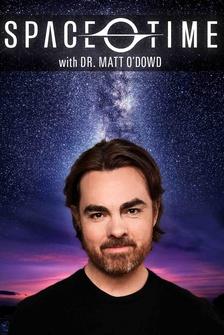- [Narrator] An international group of astronomers have announced a hint that could fundamentally change what we know about the universe and how we think it might come to an end.
The group is using the Dark Energy Spectroscopic Instrument, or DESI, to create a 3D map tracking the movements and positions of 40 million galaxies going back 11 billion years.
- So we can now get not just a map of where stuff is at any moment, we can actually play a movie and say, "Space was stretching this fast then, this fast later, this fast now."
- [Narrator] It's early days, but to their surprise, their 3D map does not align with theoretical maps of where galaxies are supposed to be.
The culprit might be dark energy.
- Dark energy is one of the invisible entities that actually fundamentally shaped the universe.
- [Narrator] Scientists believe it plays a major role in the expansion of the universe.
- There's this tantalizing clue after this amazing amount of work, collecting light from all these objects in the sky.
It looks like there really might be a change in dark energy over time.
- [Narrator] In 1998, two independent groups of astronomers discovered that not only was the universe expanding, it was expanding faster and faster.
- And therefore, in order to accelerate the universe, some kind of energy is required.
And that was what was dubbed as dark energy.
- [David] We don't know what it is.
We don't know its properties.
We don't know why it's there.
We know there's a lot of it.
Not only does DESI's 3D map take census of how many galaxies there are and how they're moving, but it also allows astronomers to start asking new questions about dark energy.
Right now, it's estimated that dark energy makes up about 70% of our universe.
The remaining 25% being slow-moving exotic particles known as cold, dark matter, and everything else, that is the normal matter, and energy we understand is just about 5% of the total inventory of the universe.
And for decades, researchers have assumed that dark energy is constant.
- If dark energy was just this constant, then the fate of the universe was kind of grim.
It would be a very sad, lonely, desolate universe 'cause the distances between galaxies would keep growing with time to a point where billions and billions of years later, you wouldn't see any nearby galaxies.
- [Narrator] But the data from DESI suggests that dark energy may actually be decreasing over time.
- It is the nature of dark energy that determines the ultimate fate of the universe, and that's why this is exciting.
And so opening the door to the possibility of changing dark energy models mean that we have more exciting fates that await us.
- But the first hint that maybe dark energy is even more complicated as a physical phenomenon.
So it really forces us to continue to grapple, hopefully with even more imagination and maybe new insights about literally what's filling the universe.
(pensive music)














